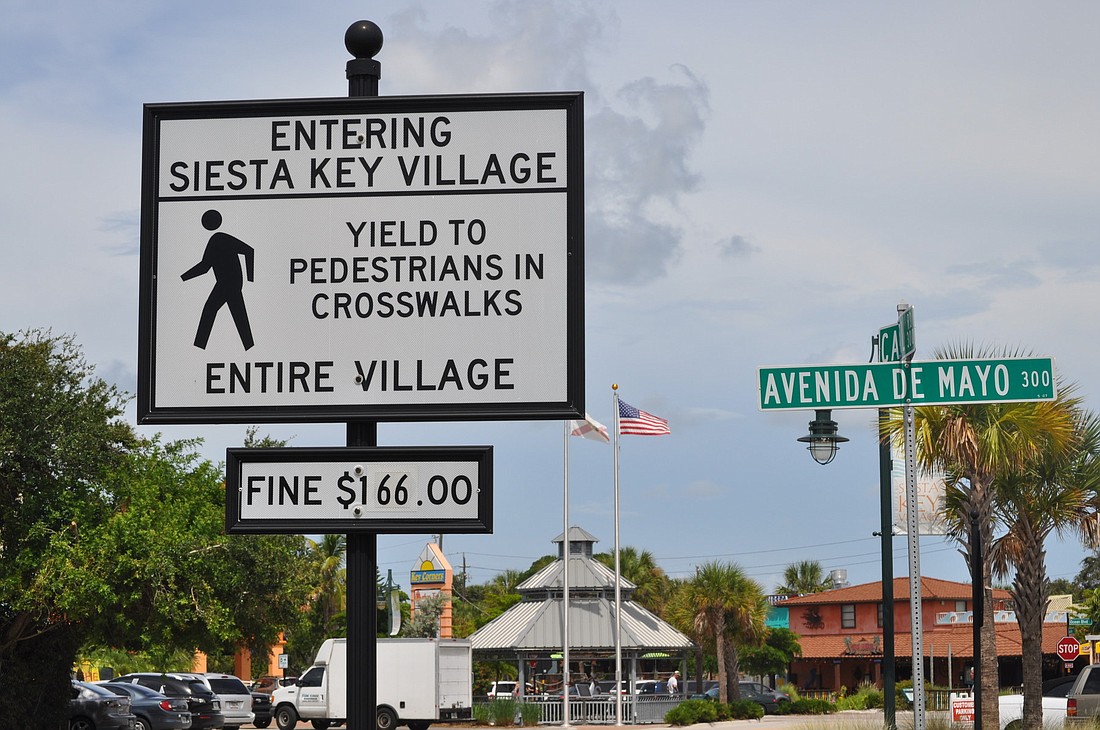- April 15, 2024
-
-
Loading

Loading

Two months after county commissioners directed staff to prepare a report on the Siesta Key Parking Public Improvement District, they received five options Oct. 9.
The following day, county commissioners voted 4-1 to abolish the special taxing district, which saves Village property owners $344,000 in taxes over the next seven years.
The funds, which are used to pay down debt from construction of the municipal parking lot in the Village, will now come from the county’s general fund. That was the second of five alternatives included in county Chief Engineer Jim Harriott’s memo, which Commissioner Joe Barbetta moved to approve.
“We don’t go building parking lots for commercial districts elsewhere,” said Sarasota County Commissioner Nora Patterson, a longtime Siesta resident and representative, who voted against the motion and questions its fairness.
Siesta business owner Chris Brown’s third lawsuit against the county is directly related to parking assessments. The lawsuit alleges the county selectively enforced the assessment method for the district, thereby increasing his taxes from 2010 to 2011 and leaving other properties’ levies unchanged or decreased. The details from the civil case prompted commissioners to ask for a breakdown of the district’s history and ways to change the taxing method to avoid further critique of assessment fairness and complexity.
“I think now the majority of (county) staff see what I’ve been going through,” Brown said.
The parking improvement district was established in 1996 to collect taxes from property owners to pay $863,000, spread over 20 years, to build the lot. The owners make lump-sum annual payments based on the number of spaces they have — and need — to comply with guidelines in the 1998 county zoning regulations.
But, varying interpretations of the ordinance that established the district have further complicated tax collections. Brown, in his recent suit, cited a memo from assistant county attorney David Pearce to commissioners four years ago, stating that the assessments should not change from year to year.
“It seems to support that it was misinterpreted and not implemented legally,” Brown said. “And I think that the next logical step would be to settle my suit before costs and fees continue to rise.”
If commissioners had left the district as is, it would have automatically dissolved in 2019. This year, district property owners paid $49,999 for the parking lot.
“I think we’d be best to get this off the books and chalk it up to a learning experience,” Commissioner Jon Thaxton said, who seconded Barbetta’s motion.
The remaining options in Harriott’s memo either kept the parking district intact but shifted the tax burden on each property and tweaked the assessment methodology or introduced concepts that have been contentious points in other county projects — such as charging for beach parking.
“Maybe buy some meters from the (city of Sarasota), or something, and go in there and meter it,” Barbetta said.
Commission Chairwoman Christine Robinson said she would greatly oppose the use of metered parking in the Village, or elsewhere in the county.
Brown sent an email to commissioners the same morning, noting that the parking levy is basically a double tax, because when a businesses expands or relocates, it must address zoning issues during the permitting process. They can then be taxed for deficient spaces that have already been addressed through an alternative parking agreement or valet parking, the email explained.
“You can’t assess away deficient parking,” Barbetta said at the commission meeting.
 Savings from the costs of further oversight will temper the dent in county revenues from abolishing the parking district.
Savings from the costs of further oversight will temper the dent in county revenues from abolishing the parking district.
“The staff time to monitor this thing is considerable,” Barbetta said.
The County Commission must now hold a public hearing to consider community input on ending the taxing district.
“If the board wants to be generous, I’m sure everybody in the Village will be happy,” Patterson said. But, the whole of Siesta contributes tourist tax dollars, making the board action seems unfair, considering what was promised in the agreement years ago, she explained.
“Hopefully things will start to calm down within the Village on issues like these and we can concentrate on just creating a better business environment all around,” Robinson said.